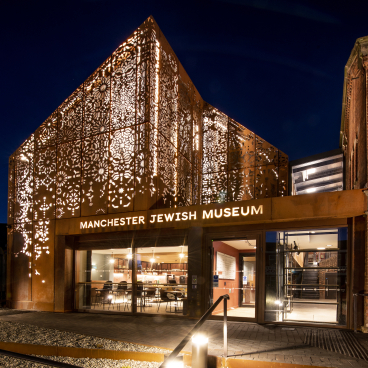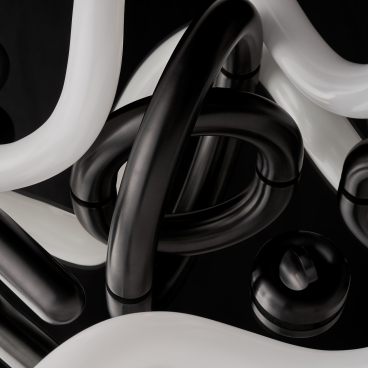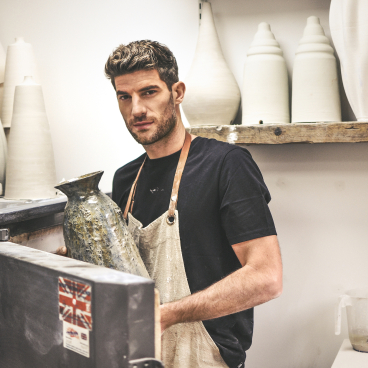Glenn & George of Yabu Pushelberg on 41 years of building spaces with emotional resonance.
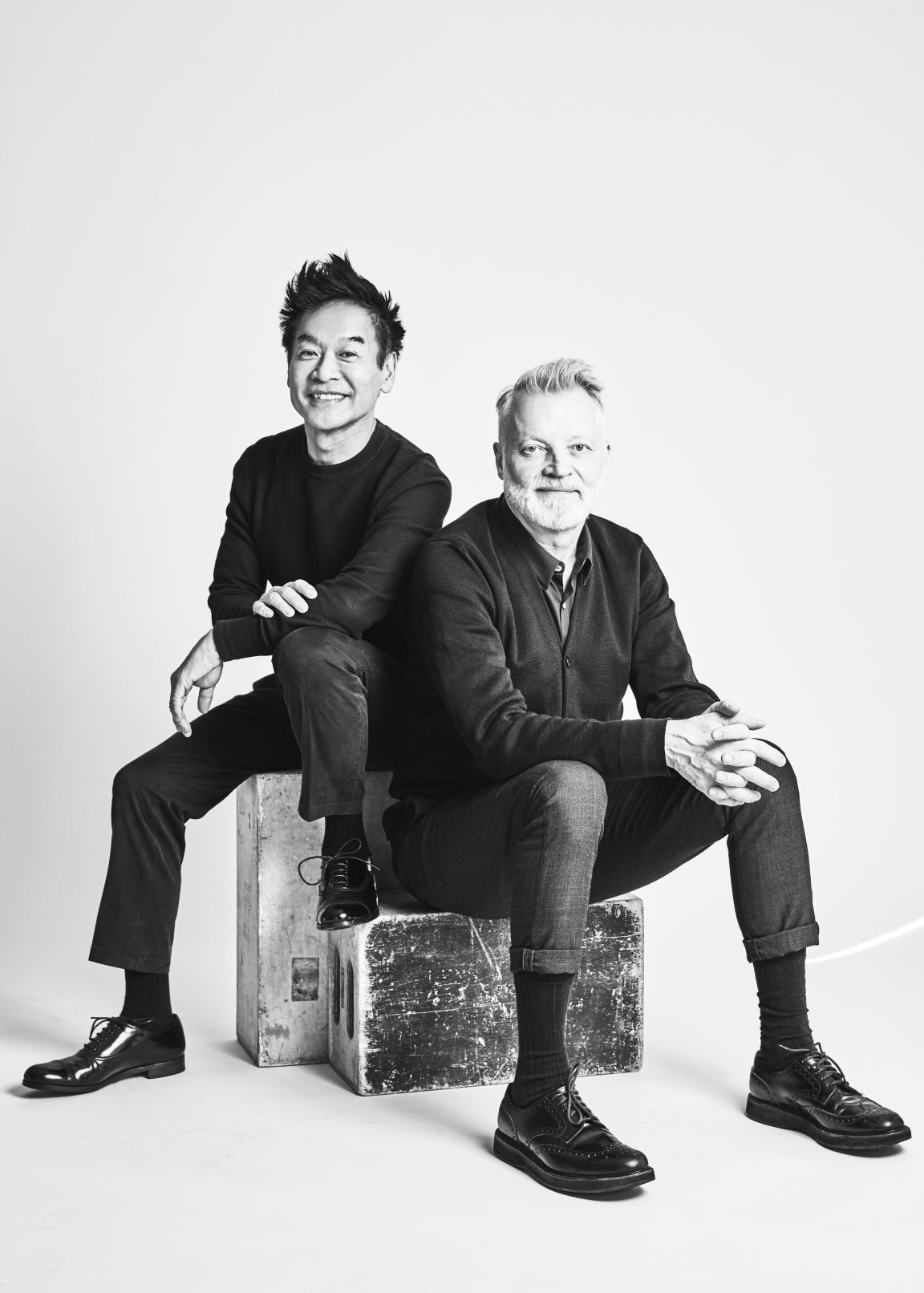
Interior design studio, Yabu Pushelberg was founded by George Yabu and Glenn Pushelberg in 1980.
With offices in New York and Toronto, and a team of more than 100 creative professionals, the multidisciplinary practice designs buildings, interiors, landscapes, lighting, furniture and graphics with a focus on addressing the many layers of the human experience.
George and Glenn have bucketloads of knowledge, an enviable high-profile client roster and a shared goal of designing the world they'd want to live in. We caught up with the dynamic duo to find out more about their creative journey so far.
Firstly, can you please introduce us to Yabu Pushelberg?
Glenn Pushelberg: "I’m Glenn. This is George. Together with our team in Toronto and New York, we are Yabu Pushelberg. We’re a creative agency touching on every element of design in an effort to not only create beautiful spaces and objects, but to also deliver experience with emotional resonance. George and I founded our practice 41 years ago and today remain woven into the day to day of the studio’s spirit and creativity."
You founded the studio in 1980 - how has your industry changed since then? - what are the most notable shifts/trends you’ve seen?
Glenn Pushelberg: "We just celebrated the studio’s 40th anniversary, which provided a special moment to reflect on how our world has evolved. The industry as a whole has of course seen tremendous growth, however the beginning of our fourth decade was a prime moment to appreciate how we’ve transformed from interior designers into a studio capable of bringing a holistic design concept to life."
George Yabu: "We’ve gone from working in North America, to North America and Asia, and this year marks a major debut in Europe. For nearly a decade, we’ve been working with incredible partners across Europe to bring our industrial designs to life, but this year we’ve opened La Samaritaine in Paris and are looking toward two incredible hotel openings in London this fall.
"I believe a driving force behind today’s work in 19 countries and counting has been the studio’s focal growth from interiors to expertise encompassing branding, building design, landscaping, styling and lighting. The world is more connected than ever, and our scope of services reflects this."
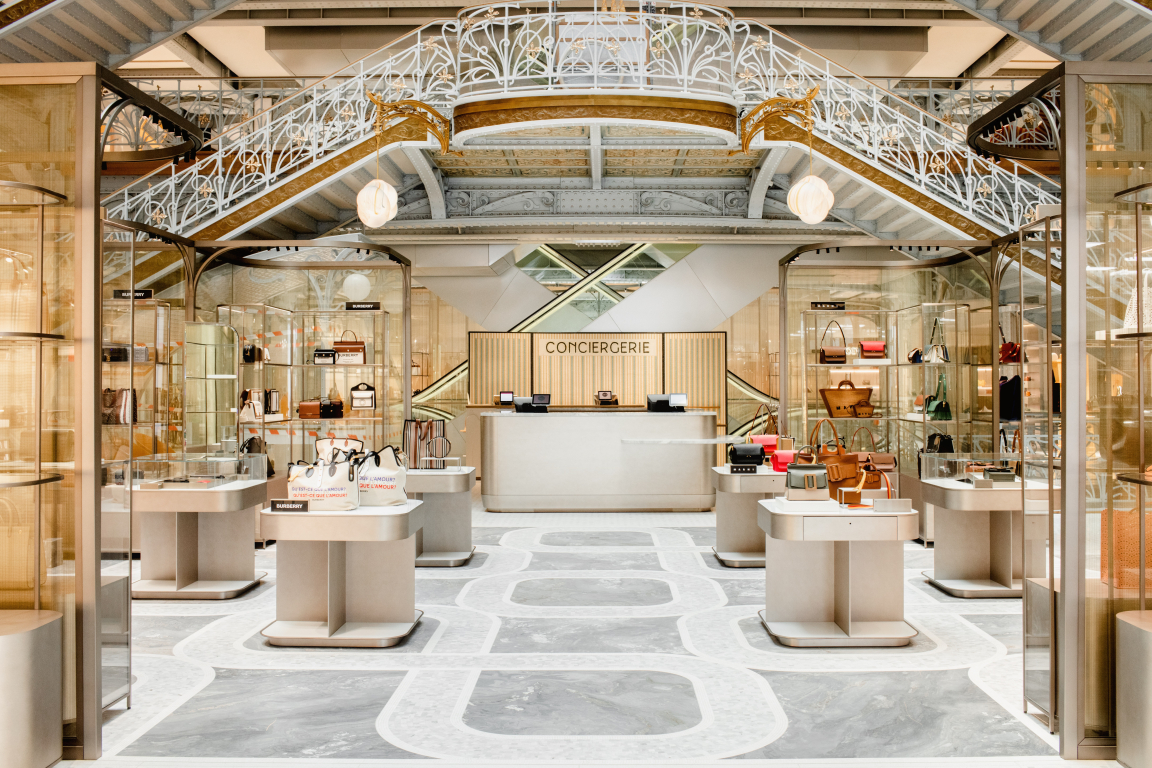
La Samaritaine @ Matthieu Salvaing
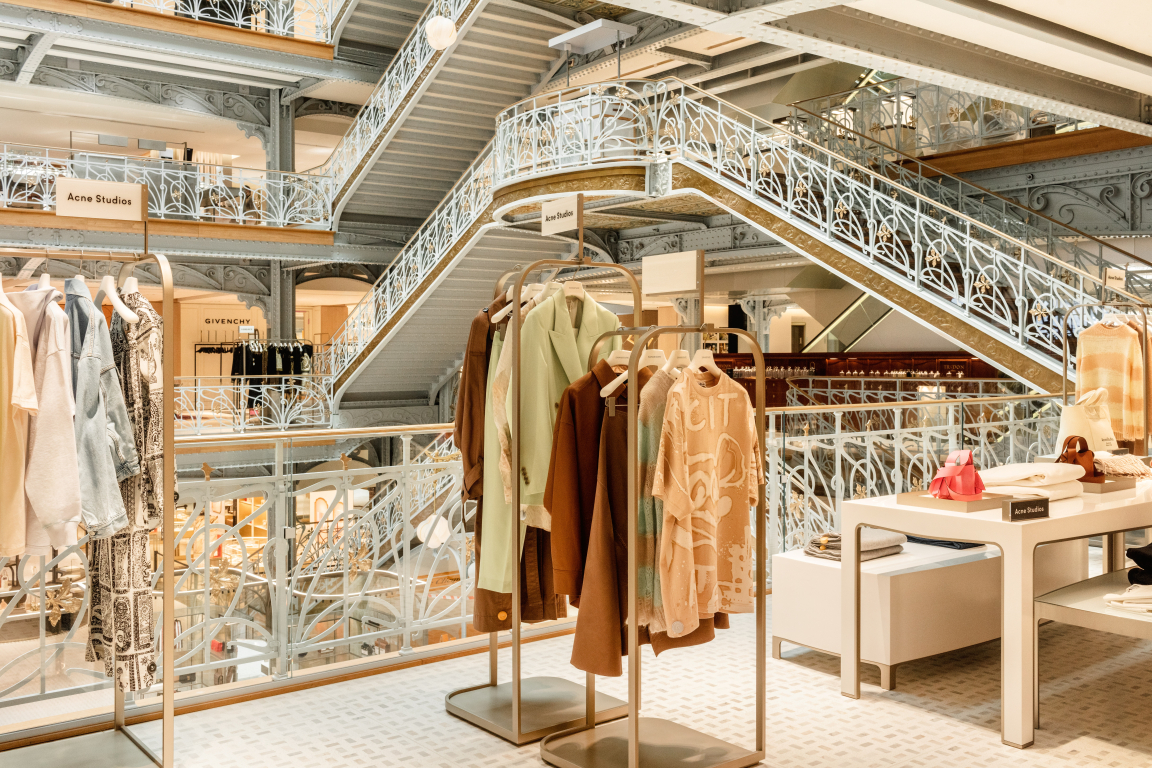
La Samaritaine @ Matthieu Salvaing
You have offices in New York and Toronto - what made you choose those destinations in particular for your bases?
George Yabu: "Glenn and I were both born in Canada, both studied at Ryerson University and both began working in Toronto after graduation. We ended up sharing a studio space and started helping each other with one another’s projects, and from there we partnered as Yabu Pushelberg. As for New York… we just love New York.
"It took some time to see the business in the city really take off, but we were willing to do whatever it took to make New York a reality. New York is its people, its places and the creativity and passion behind them. That inspires us."
How do the creative scenes differ between the two?
Glenn Pushelberg: "The paces of the cities can differ. We often find friends and partners passing through New York, so there are many nights out. In Toronto, we have a beautiful home in the forest overlooking a ravine, where we like to bring our family together. Both cities give us time with loved ones, but against different backdrops.
"In terms of creativity, our approach is ‘Two cities, one studio.’ Our design teams between Toronto and New York draw inspiration from one another to ensure both personal connectivity and consistency throughout our design language."
You have many high profile clients in the hospitality industry - including, currently, The Londoner and Pan Pacific. How have you seen the industry change over the last 18 months, and especially now as we emerge from the pandemic?
George Yabu: "There have been significant shifts in thinking throughout the pandemic. During the first few months of quarantining, the leading question was, how will hospitality change to accommodate sanitary considerations, social distancing, etcetera? The virus was the driving force behind the anticipated changes. Now, as we enter a stage of the pandemic with more similarities to the life we used to know, the question is now driven not by demands of the disease, but rather by human need and what has asserted itself as most valued and cherished over the past 18 months.
"People crave connectivity, not distance. So while there are new institutional elements to consider and design for, at the end of the day, the emphasis is on experience and shared emotion, which serves us well as a narrative-driven practice."
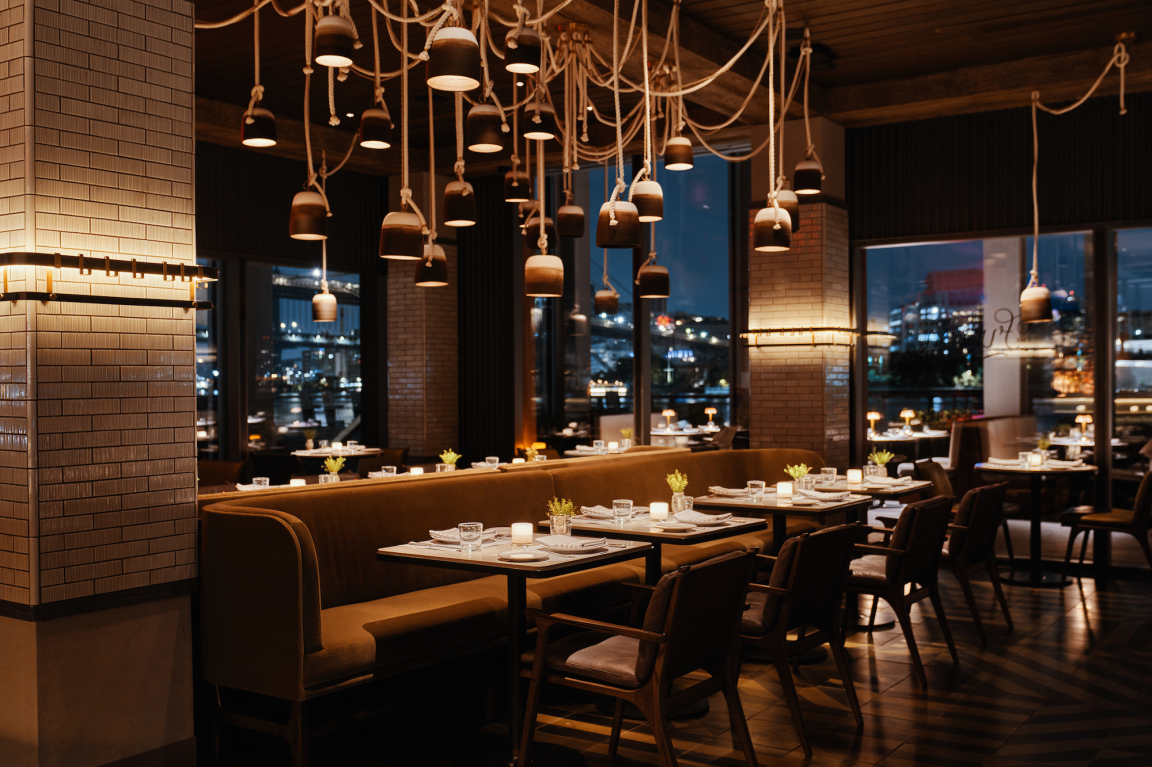
The Fulton
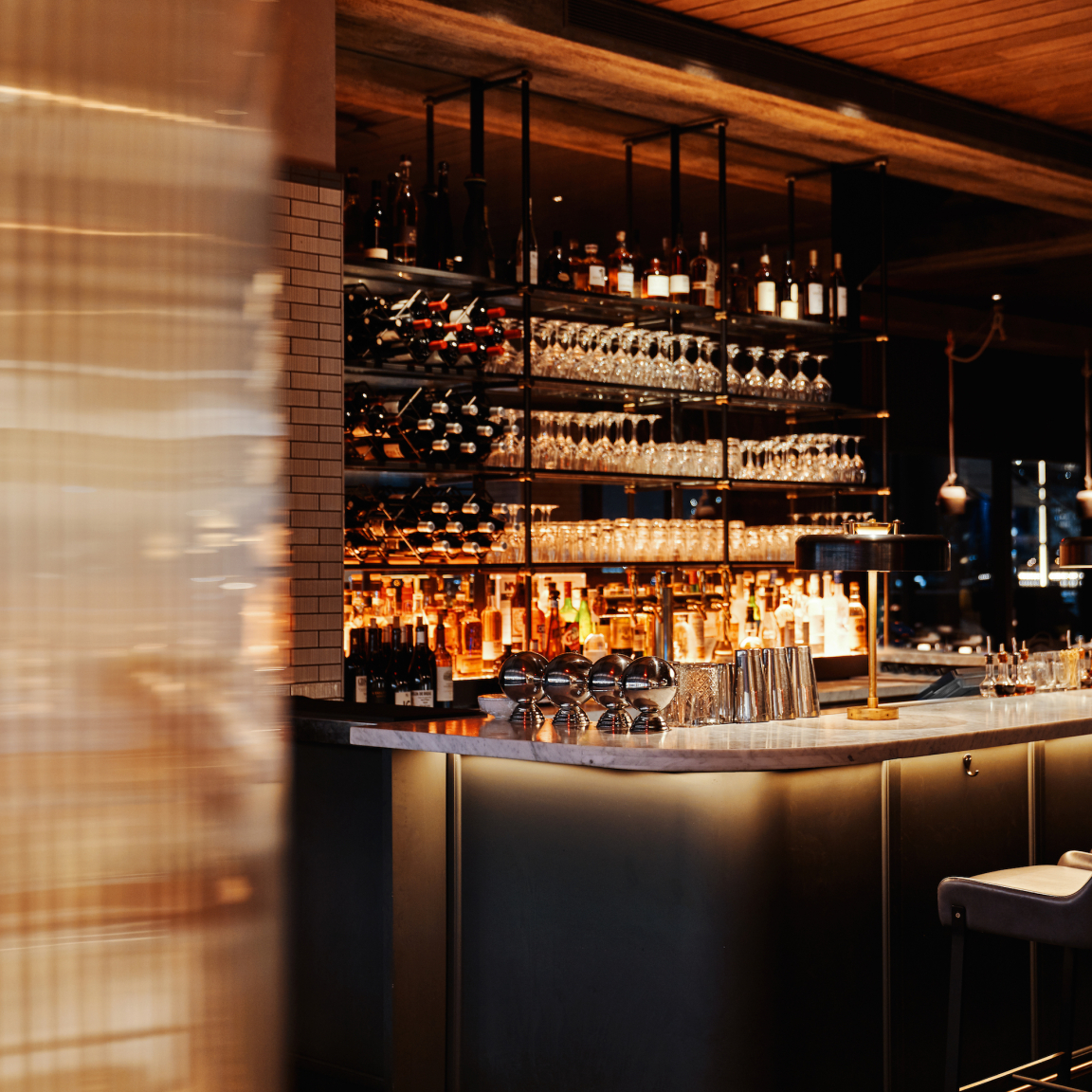
The Fulton
How will the future of hospitality be changed as a result?
George Yabu: "Rather than offering everything, good hospitality will offer something specific and meaningful. Programming will be thoughtful and beautifully curated to offer a singular experience that resonates on a soulful level."
How do you approach a brief? Do you always follow the same creative process?
Glenn Pushelberg: "We always start with a story. The narrative behind each of our projects serves to shape every layer of design, from initial concept to opening."
George Yabu: "The story often starts with a couple, conceived of as representatives of the guest. We give each character a unique set of qualities, interests and passions in resonance with the project and desired branding, and move through the stages of design with them in mind. For us, it’s all about guest experience, and having a hero duo at the heart of every project ensures we’re thinking about experience at every turn."
What’s the most interesting/strange/shocking brief you’ve ever received?
Glenn Pushelberg: "It was actually a pair of briefs. Different clients, different projects, but received at the same time. They marked our first foray into hospitality - a brief for a hotel in Japan and a brief for a hotel in Times Square. The former came with a set of guidelines and brand requirements as long as you can imagine and the latter gave us complete creative freedom. The Japanese hotel housed about fifty rooms and the New York hotel, over five hundred. Both projects - same budget. It was the ultimate jumping off point into the world of hospitality design and taught us to be prepared for anything while assuring us there would always be room for creativity and innovation."
Do you have one particular project that was your favourite?
Glenn Pushelberg: "We couldn’t possibly pick a favourite child. Each project, new and old, makes us appreciate even more the one we just finished designing and the one we’re about to begin concepting."
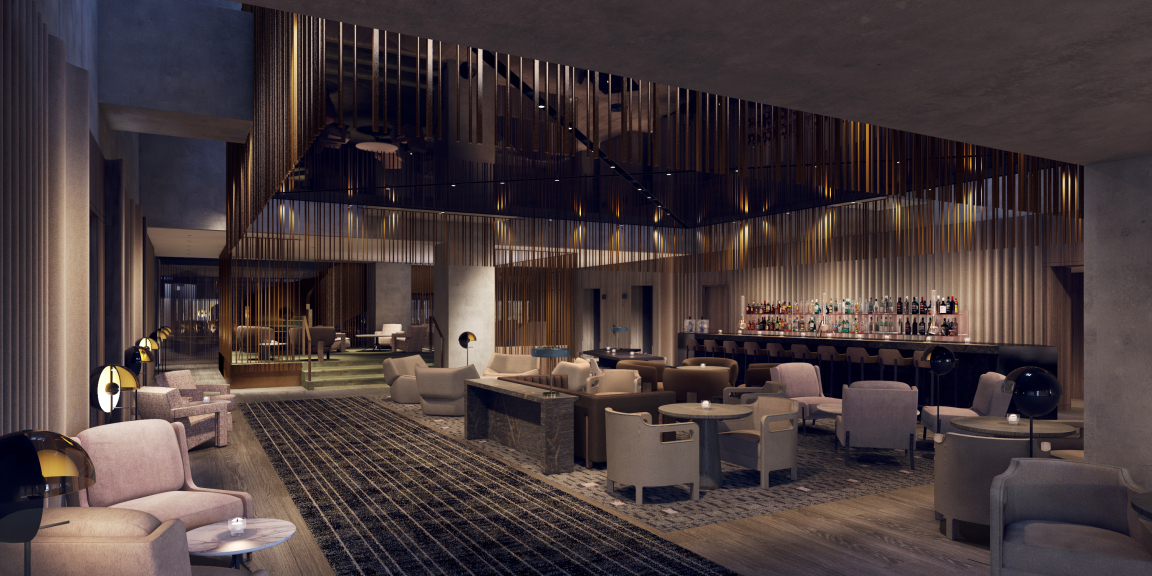
The Londoner
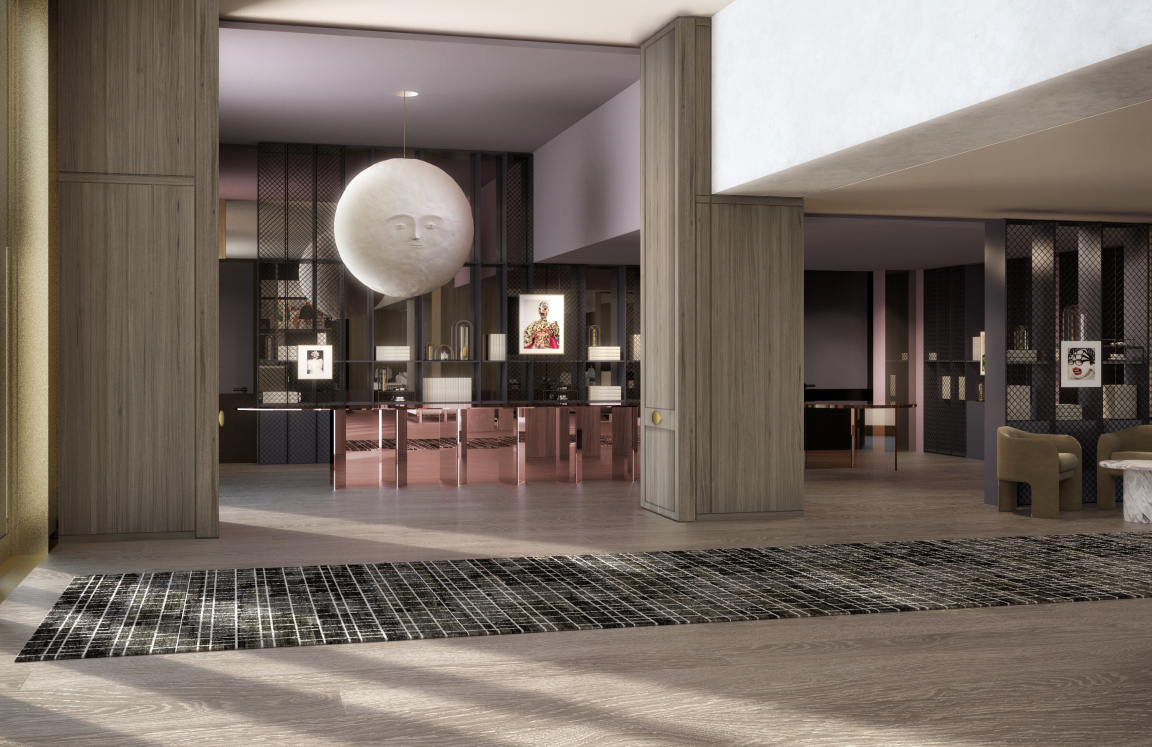
The Londoner
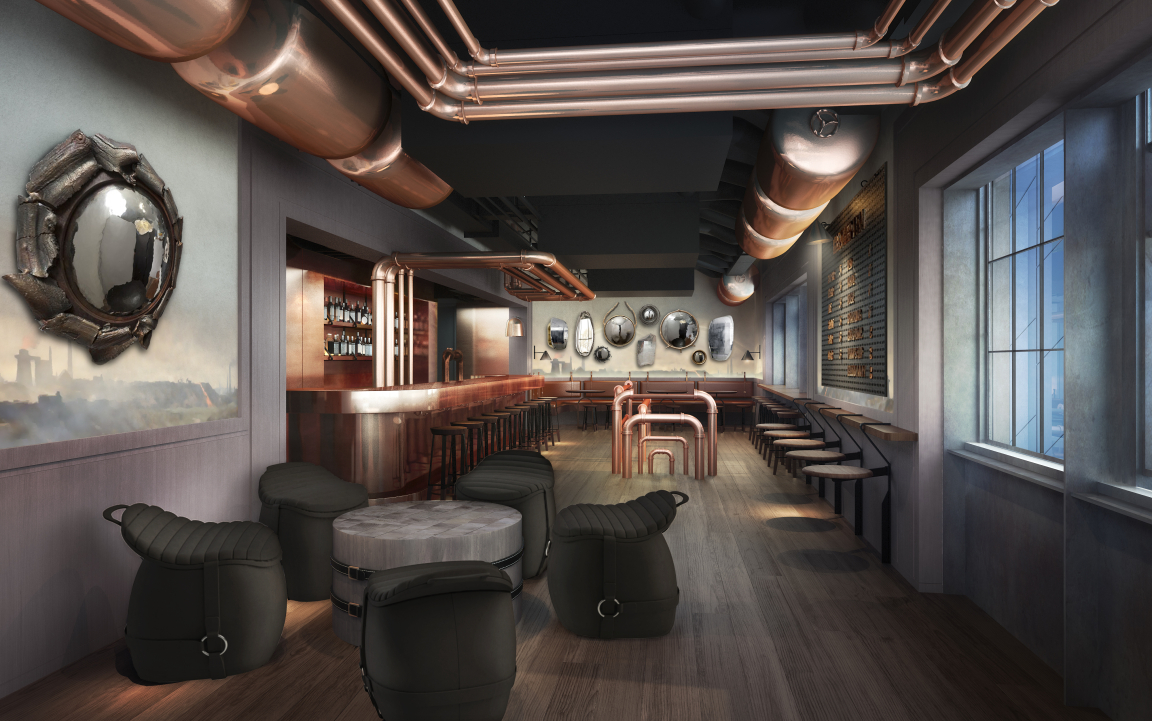
The Londoner
In addition to your client work, you also design products. Can you tell us a bit about that?
George Yabu: "We started building our industrial design team about ten years ago. It was originally formed in service to our projects and interiors teams - we had interior designers designing chairs for hotels, and they were beautiful, but the legs would fall off, or they’d be rendered non-functional immediately.
"The more the industrial design team created for the projects, the more remiss it became for these creations to never live beyond the walls of a single space in a single city. We continued growing the team and started to create collections, and now we have a full library of work to draw from."
Who or what inspires you?
Glenn Pushelberg: "Everything. We are inspired by the places we go and the people we meet, the nature and the art that surrounds us and the energy of our studio."
And, finally, what’s next for Yabu Pushelberg?
Glenn Pushelberg: "London, Milan, Germany, Los Angeles, Reykjavik, Honolulu, Tokyo, New York, Montenegro, O’ahu… we’re seeing new places, working on new projects and continuing to broaden our horizons."


